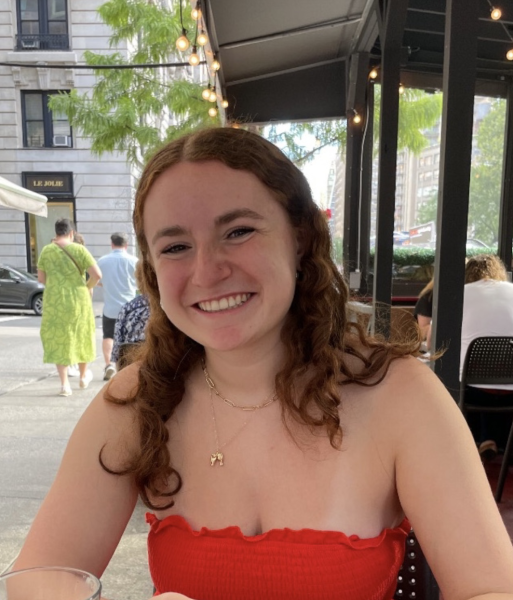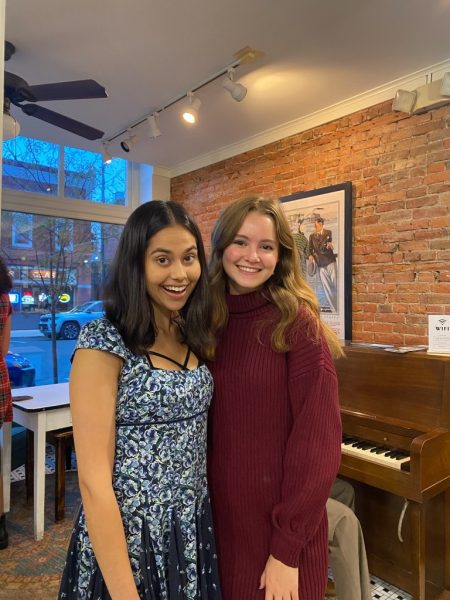Green Earth Gang, SEA and UCan: Environmental Organizations on Campus
Green Earth Gang, Students for Environmental Action (SEA) and the UCan Project are all environmental organizations at Colgate that pursue a common aim: to encourage a sustainable student body in their respective plans of action. Whether they’re teaching lessons at elementary schools, consulting with officials on campus or developing environmentally conscious guides for local businesses, these student-led organizations are devoted to considering the sensitivities that ensure their stay in the Hamilton community is a green one.
Green Earth Gang, an educational initiative composed of a core group of team leaders and a total membership of about 50 interested students, meets for five to six weeks each semester to implement environmentally-focused lessons at Madison Central School. Senior Hayley Jackson, concentrating in biology, has served as a member of Green Earth Gang since her first year at Colgate, serving now as a team leader and lesson planner. She affirmed that her work at elementary schools is an effort done in pieces.
“We have two second and third grade classrooms this year, and we split the work evenly to give everyone a lesson plan and the materials for the crafts we need,” she said. “Then, we split off and go to the classrooms to teach and craft.”
Jackson contends that the Green Earth Gang provides a unique experience not just to those interested in scientific careers, but also educational careers and a variety of other elementary settings. As Jackson completes her course of study in the 2021 school year, she juxtaposed the facets of her Green Earth Gang experience, explaining how the club has allowed her to spread the teachings of her biology concentration, and how it has provided a playful outlet for collegiate stress.
“The kids are really cute,” she said. “It’s just a nice break in the week to go teach at Madison Central School.”
Alongside the organization’s playful nature, the diversity of the body of Green Earth Gang members’ educational backgrounds and career plans allows for widespread accessibility and a group-wide educationally substantial impact.
Similarly, Students for Environmental Action (SEA) operates with a group of about 100 interested students, with an aim that parallels that of Green Earth Gang. Their goal to encourage a sustainable, informed campus is implemented through peer education efforts and lobbying for administrative reform. The group is led by President Olivia Quartz, a senior who is double concentrating in geology and geography. Their actions are carefully chosen to create meaningful change.
“When I joined SEA, it was very individual behavior-oriented,” Quartz said. “That stuff is important — but it’s also important to make sure that your individual action isn’t always just using a reusable straw. It’s also writing to your senators.”
Activities in action include letter writing campaigns, discussions with campus sustainability officials and occasional workshops. Other core members of SEA are assigned the leadership roles of vice president, treasurer and secretary. Treasurer Will Krohn, a junior with an environmental biology concentration, is fond to reflect on his time with SEA, noting that the student-run environment was what particularly drew him to join.
“Since SEA is student-run, we can pick which environmental issues we want to address at Colgate, such as waste reduction or pesticide usage,” he said.
To Secretary Jessica Zehner, a junior concentrating in geology, the structure of SEA has encouraged the unique organization to thrive. In meetings, members are often split into committees of varying size, where action is targeted in groups of interest.
“The leaders last year were very organized, they were all committee-heads. We’re not yet set on that [committee] structure for this year — but it was great to have people to bounce ideas off of, and to split the work,” Zehner said.
Quartz and the rest of the officer core meet on Sundays to plan events and meetings, and the entire body meets on Mondays. To Quartz, SEA is sustainable activism in action, and a way to gauge community attitudes on climate change.
“If students want to join, I think that they should,” she said. “It’s great to see how other students on campus are feeling about climate issues — and to do something about it.”
The UCan Project, a Colgate nonprofit Thought Into Action (TIA) venture founded by a small group of women, is another action-based environmental organization that focuses on sustaining environmentally-friendly local business practices. By offering extensive and cost-effective operation guides to sustainable business practices, UCan is able to not only support the financial livelihood of several local businesses, but to reduce their environmental toll on the area. Plans for sustainable operation encourage local businesses to make small changes, such as creating an optional grab-and-go utensil station for plastics instead of tucking them into each received order. The impact is notable.
“Just by offering utensils and carrying bags upon request, restaurants save $100-$400 per year,” their website reads.
Each varying environmental organization at Colgate has something unique to offer the diverse participants. Whether one wishes to teach, to lobby or to design, Green Earth Gang, SEA and the UCan Project offer an option for all.











